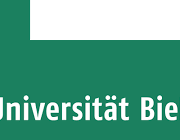Die Frage nach der Stellung des Menschen in der Wissenschaft gewinnt durch die immer umfassendere wissenschaftliche Erschließung der menschlichen Lebenswelt an Bedeutung. Das Feld der damit verbundenen Phänomene erstreckt sich von der geistes- und sozialwissenschaftlichen Erforschung des Menschen und seiner Lebenszusammenhänge über die Vorstellungen vom Menschen in den Rechts- und Wirtschaftswissenschaften bis hin zu praktischen Eingriffen in das menschliche Leben durch Medizin und die angewandten Wissenschaften. Nicht zuletzt sind auch die zunehmenden Verflechtungen technologischer und menschlicher Aktivitäten ein Ausdruck wissenschaftlichen Fortschreitens und fordern die Standortbestimmung des Menschen heraus. Diese Entwicklungen sind von Fragen begleitet, welche Rolle der Mensch in der Forschung spielen sollte, welche Bedeutung und Geschichte Menschenbilder in der Wissenschaft haben und welche epistemischen und ethischen Konsequenzen sich daraus ergeben. In welcher Form lässt sich heute überhaupt noch vom Menschen sprechen, ohne die sich spätestens seit dem Poststrukturalismus ausbreitenden Debatten um die Entmachtung und Dezentrierung des menschlichen Subjekts als sinnkonstituierendes Zentrum der Welt zu vernachlässigen? Post- und transhumanistische Bewegungen differenzieren das Feld einer kritischen Haltung gegenüber klassischen Vorstellungen über den Menschen immer weiter aus und verweisen vor allem auf die mangelnde Berücksichtigung anderer, nicht-menschlicher Lebensformen. Diese und angrenzende Problemlagen stoßen eine tiefgreifende Transformation der Wissenschaft an, der sich diese Ringvorlesung widmen möchte.
Vorträge (jeweils in Hörsaal F5, Domplatz 20-22, Münster)
20.04.2023 Prof. Dr. Martina Hessler (TU Darmstadt):
“Das Bild fehlerhafter Menschen in den Wissenschaften und die Konsequenzen”
27.04.2023 Prof. Dr. Michael Hagner (ETH Zürich):
“Mit Kopernikus ins Anthropozän. Das Foucaultsche Pendel und seine Menschenbilder“
11.05.2023 Prof. Dr. Dr. h.c. mult. Wolf Singer (Max-Planck-Institut für Hirnforschung):
“Menschenbilder aus den Perspektiven der Selbstwahrnehmung und neurobiologischer Fremdbeschreibung: Der Versuch eines Brückenschlags“
(Der Vortrag findet im Raum F4, Domplatz 20-22 statt)
25.05.2023 Prof. Dr. Jürgen Gadau (Universität Münster):
“Der Mensch – das andere Tier?“
22.06.2023 Prof. Dr. Katharina Block (Universität Oldenburg):
“Der Anthropos im Anthropozän”
29.06.2023 Dr. Janina Loh (Stabsstelle Ethik, Stiftung Liebenau):
“Zum Menschenbild des kritischen Posthumanismus”
Die Teilnahme ist in Präsenz oder per Zoom möglich. Der Zoom-Link für die Online-Teilnahme wird jeweils am Donnerstagvormittag per E-Mail zugestellt
(nach Anmeldung unter https://listserv.uni-muenster.de/mailman/listinfo/zfw-rv).








